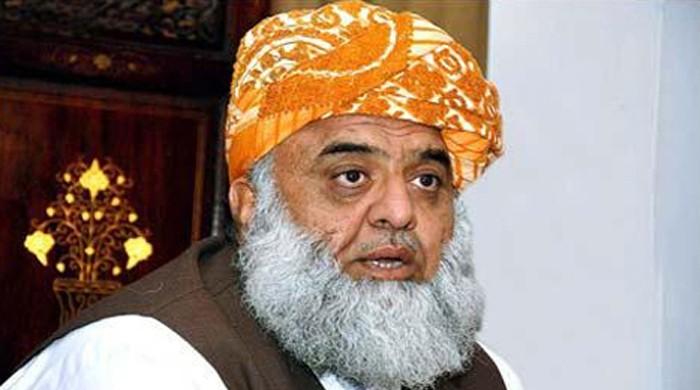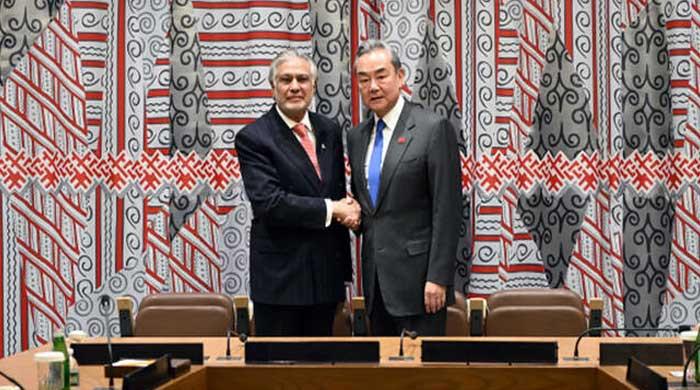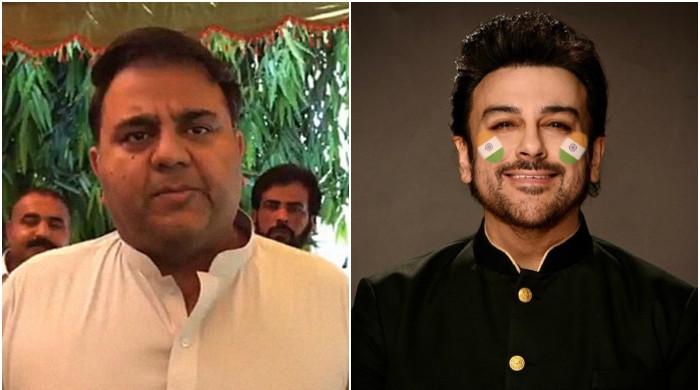JUI-F to lead religious parties in forming strategy against domestic violence bill
JUI-F chief Fazl says domestic violence bill against teachings of Islam, Quran and Constitution
August 09, 2021

- Fazl says domestic violence bill against teachings of Islam, Quran and Constitution.
- Warns of religious parties' protests against govt's move to "secularise country through such bills".
- The bill outlaws physically aggressive acts like hitting, kicking, slapping, and throwing objects as well as emotionally abusive acts like threats, emotional and economic abuse.
Jamiat Ulema-e-Islam Fazl (JUI-F) chief Maulana Fazlur Rehman is not pleased with the domestic violence and Waqf properties bills, which are both under consideration in the Parliament. He says the bills are against the teachings of Islam, Holy Quran and the Constitution.
The Domestic Violence (Protection and Prevention) Bill 2020, which seeks to prevent domestic abuse against women, children, the elderly and vulnerable persons, was presented in the National Assembly last month.
Fazl said that the JUI-F will hold a meeting of all religious parties to come up with a strategy against the bills. The JUI-F chief was holding a news conference at the Karachi residence of Shah Owais Noorani, the chief of the Jamiat Ulema-e-Pakistan where he revealed that a committee comprising lawyers and scholars had been formed against the bills.
The Pakistan Democratic Movement (PDM) president warned that religious parties across the country will take to the streets to oppose “the government’s move to secularise the country through such bills”.
He clarified that religious parties stand against domestic violence, but said that the domestic violence bill "is aimed at destroying family life and promoting Western culture and values rather than Islamic ones.”
The JUI-F chief urged people to unite against those who wanted to impose the culture of the West in Pakistan, alleging that the bill seeks to destroy the dignity of women.
'We know the politics of the PPP well'
Fazl spoke about the PDM's upcoming meeting on August 11, saying that the heads of all political parties of the alliance will meet in Islamabad to come up with a joint strategy against the government.
He clarified that the PPP will not be invited to the meeting, adding that it left the alliance due to its politics. "They should reconsider their policy. We know the politics of the PPP well."
The PDM president rejected the government's electoral reforms, including the use of electronic voting machines, saying that such measures brought about a government that had itself formed as a result of 'rigging' and it was not acceptable.
He also described the government's move to hold local government elections as a 'sham'.
Afghanistan turmoil
Fazl shared his thoughts on the ongoing conflict in Afghanistan, with three key provincial capitals falling to the Taliban in as many days. He said that it was a positive development that the Taliban were willing to initiate negotiations.
However, he expressed his disappointment that Pakistan had not been invited to discuss the situation in the Security Council meeting. Fazl mocked the government, saying that the US president was not willing to consider Pakistan as a stakeholder in the Afghanistan situation as well.
“President Joe Biden is not ready to talk to the fake prime minister of the country and is reluctant to trust Pakistan.”
Provisions of the domestic violence bill
As per the contents of the domestic violence bill, domestic abuse, which includes physically aggressive acts like hitting, kicking, slapping, and throwing objects as well as emotionally abusive acts like threats, emotional and economic abuse, have been outlawed.
The bill aims to establish an effective system of protection, relief and rehabilitation of women, children, elders and other vulnerable persons against domestic violence in the territorial jurisdiction of Islamabad Capital Territory. It will provide relief to victims of domestic violence who are in a domestic relationship and are related to each other by consanguinity, marriage and kinship etc.
The bill also empowers courts to grant interim orders, protective custody and residence orders as well as award monetary relief to victims of violence at the expense of the respondent.
The bill also envisages the creation of a Protection Committee to assist the aggrieved person and process his/her application in court. The Ministry of Human Rights arranged a number of consultations with the relevant stakeholders and also obtained a no-objection certificate from the Ministry of Interior, being the relevant ministry, to deal with issues of violence.
A few days later, Adviser to the Prime Minister on Parliamentary Affairs Babar Awan wrote a letter to National Assembly Speaker Asad Qaiser, seeking a review of the domestic violence bill by the Council of Islamic Ideology (CII).
In his letter, Awan pointed out that the Senate had urged amendments to the bill and how certain definitions and contents of the bill had raised concerns.
"Most importantly it is being highlighted that the bill contravenes the Islamic [injunctions] and way of life as enshrined in responsibility of the state in Article 31 of the Constitution of Islamic Republic of Pakistan," read the letter.











